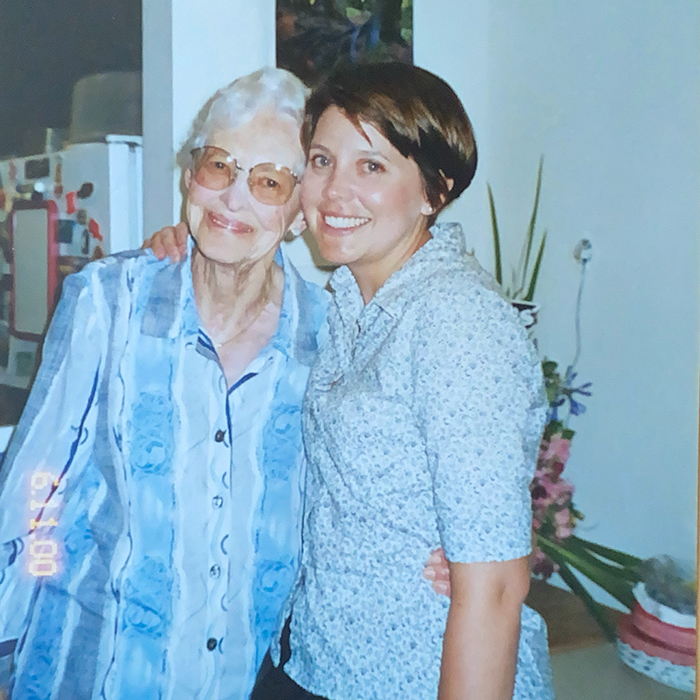Clearing Barriers to Students’ Degrees and Dreams
Through the Interdisciplinary Studies program, Carol Caronna, Ph.D. helps undergraduates navigate a way forward so they can stay at TU and graduate.
Earning a college degree isn’t always a straight path. Life can interrupt even the best-laid plans—but Carol Caronna, Ph.D., sees those twists and turns as an opportunity.
“For many students, that opportunity comes from a traditional academic program, but some students need more flexibility,” she says.
As director of Towson University’s Interdisciplinary Studies program (IDIS), Caronna helps students who need a more flexible path to graduation.
Interdisciplinary programs allow students to create a customized course of study. Examples include national security and counterterrorism, disability studies, behavioral neuroscience and Black performance theory.
In some cases, students facing roadblocks to completing their degrees can work with Caronna to use past coursework or experience to form a new interdisciplinary option and help them graduate.
Helping transfer students hit the ground running
Some of the students Caronna works with have transferred to TU from other colleges after making substantial progress on a degree.
“These students come from other 4-year universities and only need 30 credits to graduate, but we might not offer the major they were working on. Or our major with a similar name might have very different requirements,” she says.
One student Caronna worked with was studying Classics at CU Boulder before transferring. TU does not have a Classics major, but by working with faculty members who teach similar courses, she finished her degree as an Interdisciplinary Studies major.

Flexibility for NCAA student athletes and non-traditional students
Flexibility is also key for NCAA athletes who transfer in their final year of eligibility. Some student athletes bring with them coursework from three or four colleges, which can make it difficult to match them to traditional majors.
“Using the IDIS thematic option, we can create a theme that builds on their previous coursework, incorporates already existing courses and speaks to their goals so that their academic experience at TU is meaningful,” Caronna explains.
Using the IDIS thematic option, we can create a theme that builds on their previous coursework, incorporates already existing courses and speaks to their goals so that their academic experience at TU is meaningful.
Carol Caronna
Returning students can benefit too, even after years—or sometimes decades—away from college.
When students return after a long break, it’s very likely that their major requirements or goals and interests have changed. In cases like these, the flexibility of Interdisciplinary Studies can really pay off. For Caronna, helping returning students graduate without having to completely start over is very rewarding.
We talk about success as if we orchestrate it ourselves, while in reality success can depend on many outside factors lining up in just the right way.
Carol Caronna
“We talk about success as if we orchestrate it ourselves, while in reality success can depend on many outside factors lining up in just the right way,” she says. “It’s so rewarding to help students finish college after ten, twenty or even thirty years.”
Paying it Forward
Caronna comes from a family of academic achievers. Her grandmother earned a B.A. and M.A. in botany. Years later, at age 88, her grandmother watched with pride as Caronna completed her own Ph.D.

Her family’s support is something Caronna pays forward.
“As a sociologist, I look at the cues from my family that gave me confidence,” Caronna says.
“I can share that privilege with students, what I know and feel, so they realize it’s true for them, too.”
While IDIS isn’t the right fit for everyone, Caronna says helping those who can benefit is the most rewarding part of her job.
“The IDIS program doesn’t work for all students: we have to be able to create a meaningful theme, and we need faculty advisors and academic departments on board. But if a student is eligible, we facilitate their best opportunity to graduate from TU.
Working with these students is my favorite part of my job.”
Taylor Richardson is the first U.S. recipient of the McCall MacBain Scholarship
Taylor Richardson ‘23, who worked with Caronna to create a minor in interdisciplinary studies with a theme of Black performance theory, is the first U.S. Recipient of the McCall MacBain Scholarship.

“When I created my minor, I knew I wanted to use it as an opportunity to delve deeper into the historical and contemporary components of African American life and reality and how that translates into performance art.”
Taylor Richardson ‘23
Read more about Richardson’s experience receiving the scholarship